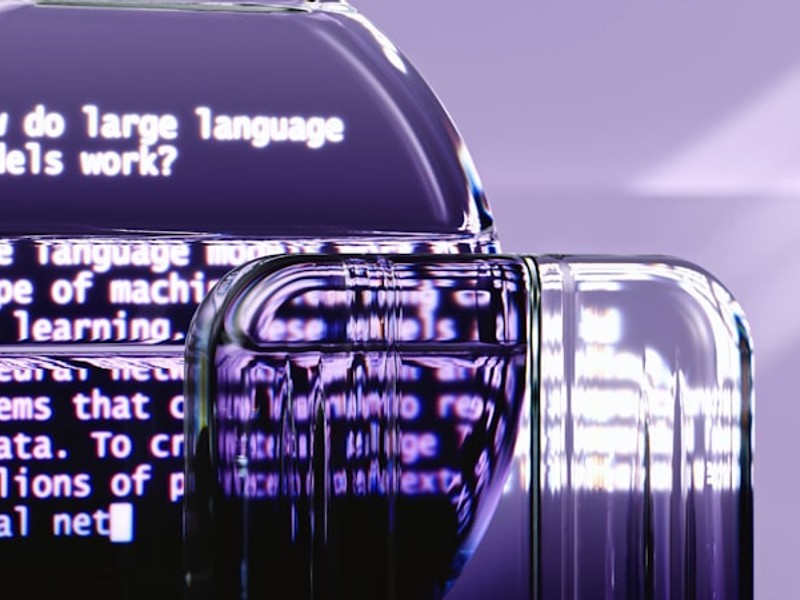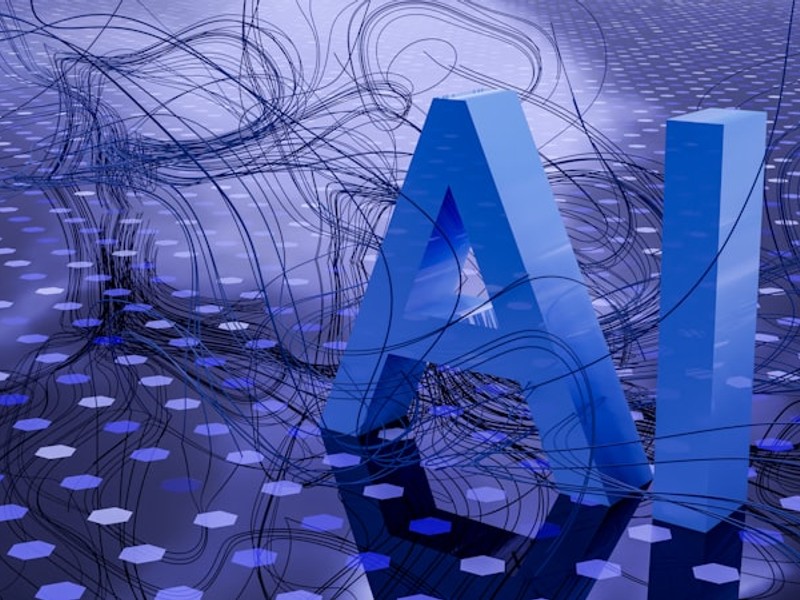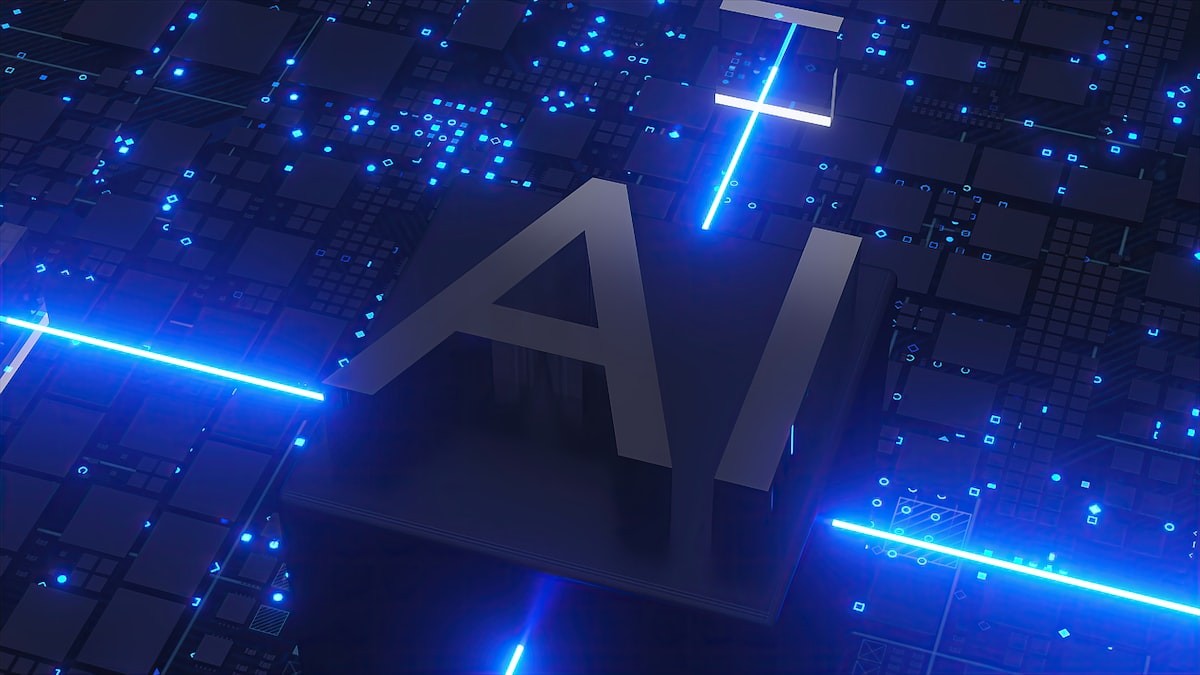Unlock Insights: AI Summarization & Knowledge Assistants
In today's information-saturated world, staying informed and making data-driven decisions requires sifting through vast amounts of content. This is where AI summarization / knowledge assistants come in, offering powerful tools to condense information, extract key insights, and streamline workflows. This article delves into the practical applications, current trends, and future possibilities of these transformative technologies.
1. Understanding AI Summarization and Knowledge Assistants

white and black typewriter with white printer paper
At their core, AI summarization / knowledge assistants leverage artificial intelligence, particularly natural language processing (NLP) and machine learning (ML), to analyze and condense textual or multimedia data. They go beyond simple copy-pasting, aiming to provide coherent and informative summaries that capture the essence of the original source.
What is AI Summarization?
AI summarization is the process of automatically generating a concise and accurate summary of a longer text. There are two primary approaches:
- Extractive Summarization: This method identifies and extracts the most important sentences or phrases from the original text and combines them into a summary. It focuses on selecting existing content.
- Abstractive Summarization: This method aims to understand the meaning of the original text and then generate a new summary in its own words. This approach requires a deeper understanding of the language and context.
What are Knowledge Assistants?
Knowledge assistants are AI-powered tools designed to help users access, organize, and utilize information more efficiently. They often incorporate AI summarization capabilities but also offer additional features such as:
- Question Answering: Answering specific questions based on a knowledge base.
- Information Retrieval: Finding relevant information across multiple sources.
- Knowledge Graph Construction: Building and navigating interconnected knowledge structures.
- Personalized Recommendations: Suggesting relevant information based on user interests and needs.
2. Key Benefits of Using AI Summarization / Knowledge Assistants

a close up of a piece of luggage with text on it
The advantages of using AI summarization / knowledge assistants are numerous and impactful. Here are some key benefits:
- Increased Productivity: Quickly grasp the key points of documents, articles, and reports, saving valuable time and effort.
- Improved Decision-Making: Access relevant information and insights quickly, leading to more informed and data-driven decisions.
- Enhanced Research Capabilities: Streamline research processes by automatically summarizing articles, research papers, and other relevant materials.
- Better Information Retention: Focus on key information and improve comprehension.
- Reduced Information Overload: Filter out irrelevant information and focus on what matters most.
- Accessibility: Make information accessible to individuals with learning disabilities or language barriers.
3. Practical Applications Across Industries

a computer generated image of the letter a
AI summarization / knowledge assistants are finding applications in a wide range of industries:
- Healthcare: Summarizing patient records, research papers, and medical literature to improve diagnosis and treatment.
- Finance: Analyzing financial reports, news articles, and market data to make informed investment decisions. (Consider linking to an article about AI in finance [External Link suggestion])
- Legal: Summarizing legal documents, case files, and contracts to expedite legal research and analysis.
- Education: Summarizing textbooks, articles, and research papers to facilitate learning and comprehension.
- Journalism: Automating the creation of news summaries and alerts.
- Business: Summarizing meeting minutes, emails, and internal documents to improve communication and collaboration.
- Customer Service: Quickly understanding customer issues by summarizing chat logs and support tickets.
4. Top AI Summarization / Knowledge Assistant Tools in 2024/2025
The market for AI summarization / knowledge assistants is rapidly evolving. Here are some of the leading tools and platforms available in 2024/2025:
- Otter.ai: Primarily focused on meeting transcription and summarization, with powerful collaboration features. (Link to Otter.ai website [External Link suggestion])
- Fireflies.ai: Another excellent option for meeting transcription and summarization, integrating seamlessly with various video conferencing platforms.
- SummarizeBot: A versatile tool that can summarize text from various sources, including websites, documents, and articles.
- Jasper.ai: A comprehensive AI writing assistant that includes summarization capabilities as part of its broader feature set.
- Grammarly: While primarily known for grammar and style checking, Grammarly also offers summarization features.
- ResearchRabbit: A knowledge graph tool designed to help researchers discover and connect relevant research papers. (Link to ResearchRabbit website [External Link suggestion])
- Elicit: An AI research assistant that helps users find and understand research papers, including summarization and extraction of key information.
- Microsoft Copilot (formerly Bing Chat Enterprise): Offers summarization capabilities across various Microsoft applications, including Word, PowerPoint, and Teams.
Note: This list is not exhaustive, and the capabilities and pricing of these tools may change. It's essential to evaluate your specific needs and choose the tool that best suits your requirements.
5. Choosing the Right AI Summarization / Knowledge Assistant
Selecting the right AI summarization / knowledge assistant requires careful consideration of several factors:
- Accuracy: The tool should provide accurate and reliable summaries that capture the essence of the original source.
- Speed: The tool should be able to generate summaries quickly and efficiently.
- Ease of Use: The tool should be easy to use and integrate into existing workflows.
- Features: Consider the specific features you need, such as question answering, information retrieval, and knowledge graph construction.
- Pricing: Evaluate the pricing model and choose a tool that fits your budget.
- Data Security and Privacy: Ensure the tool adheres to strict data security and privacy standards.
- Integration Capabilities: The ability to integrate with other tools and platforms you already use is crucial for seamless workflow.
6. The Future of AI Summarization / Knowledge Assistants
The field of AI summarization / knowledge assistants is rapidly evolving, with several exciting trends on the horizon:
- Improved Accuracy and Fluency: AI models are becoming increasingly sophisticated, leading to more accurate and fluent summaries.
- Multimodal Summarization: The ability to summarize information from various sources, including text, images, audio, and video.
- Personalized Summarization: Tailoring summaries to individual user preferences and needs.
- Integration with Virtual Assistants: Seamless integration with virtual assistants like Siri and Alexa.
- Explainable AI (XAI): Providing explanations for why the AI generated a particular summary, increasing transparency and trust.
- Enhanced Knowledge Graph Capabilities: More sophisticated knowledge graphs that can represent complex relationships between concepts and entities.
7. Implementing AI Summarization / Knowledge Assistants Effectively
To maximize the benefits of AI summarization / knowledge assistants, consider these best practices:
- Define Clear Goals: Identify the specific problems you want to solve and the outcomes you want to achieve.
- Choose the Right Tool: Select a tool that aligns with your specific needs and requirements.
- Provide High-Quality Input Data: The accuracy of the summaries depends on the quality of the input data.
- Train Users: Provide adequate training to ensure users understand how to use the tool effectively. (Consider adding a link to a training resource [External Link suggestion])
- Monitor Performance: Track the performance of the tool and make adjustments as needed.
- Combine with Human Expertise: Remember that AI summarization is a tool to augment, not replace, human intelligence. Review and refine summaries to ensure accuracy and completeness.
8. Addressing Potential Challenges and Ethical Considerations
While AI summarization / knowledge assistants offer numerous benefits, it's important to be aware of potential challenges and ethical considerations:
- Bias: AI models can perpetuate biases present in the training data, leading to biased summaries. Mitigation strategies include using diverse training data and carefully evaluating the output for bias.
- Misinformation: Inaccurate or misleading summaries can spread misinformation. Implement robust fact-checking mechanisms to verify the accuracy of summaries.
- Job Displacement: Automation of summarization tasks may lead to job displacement. Focus on retraining and upskilling workers to adapt to the changing job market.
- Privacy Concerns: Handling sensitive data requires strict adherence to data privacy regulations. Implement appropriate security measures to protect user data.
- Copyright Issues: Summarizing copyrighted material may raise copyright concerns. Ensure compliance with copyright laws and fair use principles.
Conclusion
AI summarization / knowledge assistants are revolutionizing the way we access and process information. By understanding the benefits, applications, and challenges of these tools, professionals and enthusiasts can leverage their power to enhance productivity, improve decision-making, and unlock new insights. Embrace the future of knowledge management and explore how AI summarization / knowledge assistants can transform your work and life. Are you ready to start leveraging the power of AI to unlock the insights hidden within your data? Explore the tools mentioned above and begin your journey today.
FAQ
Q1: What is the difference between extractive and abstractive summarization?
Extractive summarization selects and combines existing sentences from the original text, while abstractive summarization generates new sentences that convey the meaning of the original text.
Q2: Can AI summarization tools be used for languages other than English?
Yes, many AI summarization tools support multiple languages. However, the accuracy and fluency may vary depending on the language.
Q3: How accurate are AI summarization tools?
The accuracy of AI summarization tools varies depending on the complexity of the text and the sophistication of the AI model. It's always recommended to review and refine AI-generated summaries.
Q4: Are AI summarization / knowledge assistants expensive?
The cost of AI summarization / knowledge assistants varies depending on the tool and the features offered. Some tools offer free trials or free plans with limited features, while others require a subscription.
Q5: How secure are AI summarization / knowledge assistants?
The security of AI summarization / knowledge assistants depends on the provider. Choose providers that adhere to strict data security and privacy standards and offer features like encryption and access control.


